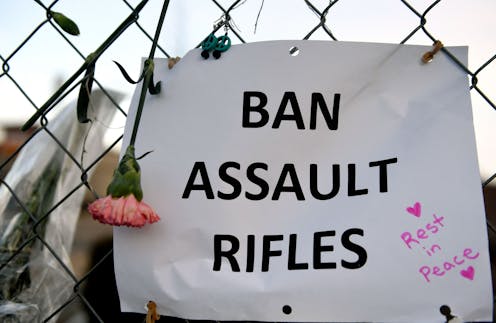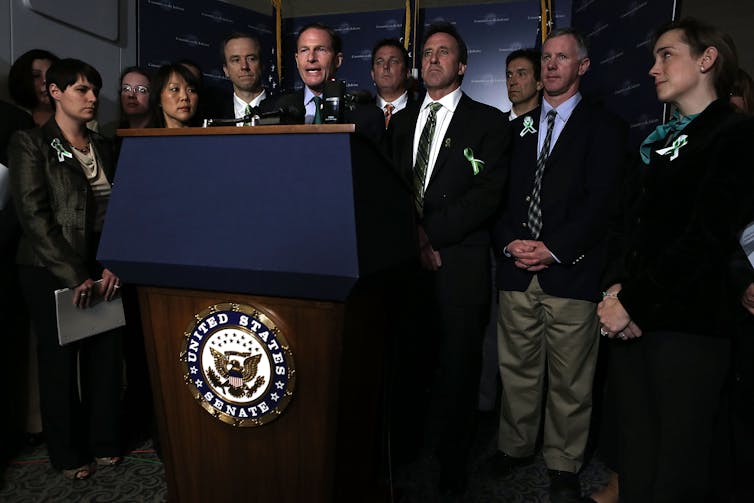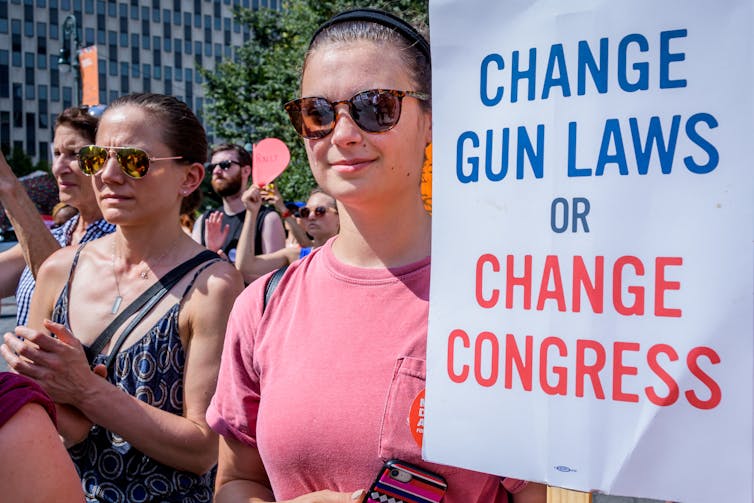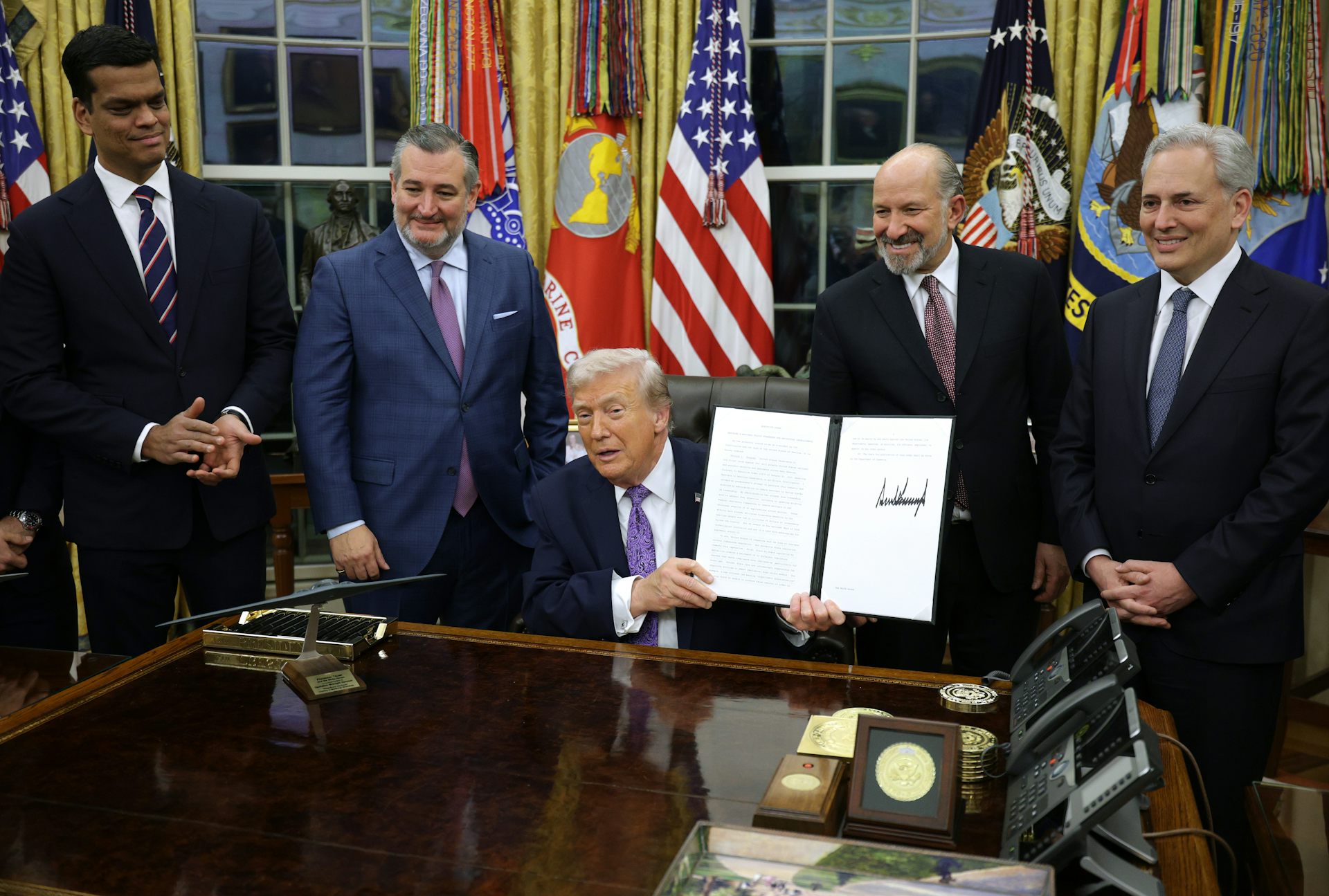Gun control fails quickly in Congress after each mass shooting, but states often act – including to
After mass shootings, politicians in Washington have failed to pass new gun control legislation, despite public pressure. But laws are being passed at the state level, largely to loosen restrictions.

Recent mass shootings at three spas in Atlanta, Georgia and a supermarket in Boulder, Colorado have renewed calls for new gun legislation.
The U.S. has been here before – after shootings in Tucson, Aurora, Newtown, Charleston, Roseburg, San Bernardino, Orlando, Las Vegas, Parkland, El Paso and other communities across the United States.
Congress has declined to pass significant new gun legislation after dozens of shootings, including shootings that occurred during periods like this one, with Democrats controlling the House of Representatives, Senate and presidency.
This response may seem puzzling given that national opinion polls reveal extensive support for several gun control policies, including expanding background checks and banning assault weapons.
But polls do not determine policy. Stricter gun laws are more popular among Democrats than Republicans, and major new legislation would likely need votes from at least 10 Republican senators. Many of these senators represent constituencies opposed to gun control. Despite national polls showing majority support for an assault weapons ban, not one of the 30 states with a Republican-controlled legislature has such a policy. The absence of strict control policies in Republican-controlled states shows that senators crossing party lines to support gun control would be out of step with the views of voters whose support they need to win elections.
But, a lack of action from Congress doesn’t mean gun laws are stagnant after mass shootings.
I am a professor of strategy at UCLA and have researched gun policy. With my co-authors at Harvard University, I’ve studied how gun laws change following mass shootings.
Our research on this topic finds there is legislative activity following these tragedies, but at the state level.

Restrictions loosened
To examine how policy changes, we assembled data on shootings and gun legislation in the 50 states between 1990 and 2014. Overall, we identified more than 20,000 firearm bills and nearly 3,200 enacted laws. Some of these loosened gun restrictions; others tightened them; and still others did neither or both – that is, tightened in some dimensions but loosened in others.
We then compared gun laws before and after mass shootings in states where mass shootings occurred, relative to all other states.
Contrary to the view that nothing changes, state legislatures consider 15% more firearm bills the year after a mass shooting. Deadlier shootings – which receive more media attention – have larger effects.
In fact, mass shootings have a greater influence on lawmakers than other homicides even though they account for less than 1% of gun deaths in the United States.
As impressive as this 15% increase in gun bills may sound, gun legislation can reduce gun violence only if it becomes law. And when it comes to enacting these bills into law, our research found that mass shootings do not regularly cause lawmakers to tighten gun restrictions.
In fact, we found the opposite; Republican state legislatures pass significantly more gun laws that loosen restrictions on firearms after mass shootings.
That’s not to say Democrats never tighten gun laws – there are prominent examples of Democratic-controlled states passing new legislation following mass shootings.
California, for example, enacted several new gun laws following a 2015 mass shooting in San Bernardino. Our research shows, however, that Democrats don’t tighten gun laws more than usual following mass shootings.

Ideology governs response
The contrasting response from Democrats and Republicans is indicative of different philosophies regarding the causes of gun violence and the best ways to reduce deaths.
While Democrats tend to view environmental factors as contributing to violence, Republicans are more likely to blame the individual shooters. Politicians favoring looser restrictions on guns following mass shootings frequently argue that more people carrying guns would allow law-abiding citizens to stop perpetrators.
In fact, gun sales often surge after mass shootings, in part because people fear being victimized.
Democrats, in contrast, typically focus more on trying to solve policy and societal problems that contribute to gun violence.
For both sides, mass shootings are an opportunity to propose bills consistent with their ideology.
[Deep knowledge, daily. Sign up for The Conversation’s newsletter.]
Since we wrote our study of gun legislation following mass shootings, which covered the period through 2014, several additional tragedies have energized the gun control movement that emerged following the December 2012 shooting at Sandy Hook Elementary School in Connecticut. Student activism following the 2018 shooting at Marjory Stoneman Douglas High School in Parkland, Florida, did not result in congressional action but led several states to pass new gun control laws.
With more funding and better organization, this new movement is better positioned than prior gun control movements to advocate for stricter gun policies following mass shootings. But with states historically more active than Congress on the issue of guns, both advocates and opponents of new restrictions should look beyond Washington, D.C., for action on gun policy.
Christopher Poliquin does not work for, consult, own shares in or receive funding from any company or organization that would benefit from this article, and has disclosed no relevant affiliations beyond their academic appointment.
Read These Next
What’s at stake in Trump’s executive order aiming to curb state-level AI regulation
In the absence of comprehensive federal AI regulation, states have stepped in. The Trump administration,…
The Bible says little about Jesus’ childhood – but that didn’t stop medieval Christians from enjoyin
Legends about Jesus’ early years that circulated in medieval Europe often drew on apocryphal texts.
Data centers need electricity fast, but utilities need years to build power plants – who should pay?
How many data centers will be built – and how much electricity they’ll need – is uncertain. Being…





